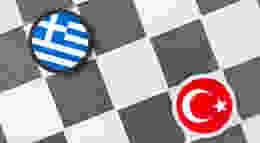
France stands on a precipice
With French voters heading to the polls tomorrow, Tom Lahey explains why they must vote for the only candidate promising to deliver a forward looking, optimistic vision for France.
This French Presidential election has the potential to have profound ramifications, not just for France itself, but across Europe too.
Officials in Brussels await with baited breath to hear the result of tomorrow's vote. The implications for the European Union and its future are considerable. Irrespective of which candidate wins, both are likely to bring to prompt significant reform for the EU. But the two have contrasting visions for what those changes should be. Macron, for example, is in favour of reforming the Union to make it more flexible and efficient. He has called for an EU finance minister to oversee the introduction of a blanket eurozone finance policy so that all 17-members operate in unison. He offers a progressive, pro-EU 'globalist' agenda amidst a rising tide of protectionism, national egoism, and anti-European fervour.
It's a bold strategy, especially in France, where unemployment has stubbornly remained at 9.6 per cent and young people in France struggle to find employment. In northern France, where Le Pen's support is strongest, industrialisation has given way to unemployment and the pro-Europeanism which fuelled the French economy for half a century has ebbed to form a resentment towards Brussels, immigrants and the euro. Macron faces an uphill struggle win over hearts and minds in a part of the country, in which scepticism towards Europe and progressive politics runs deep.
Macron is a pragmatic thinker. An advocate of President Hollande's contentious labour market reforms, he wants to make France more innovative and competitive, not just in the European market, but globally. As in the United States, where coal mines and factories have closed, breeding resentment among those affected, the problem exists as to how best to reintegrate these displaced workers back into the economy. Macron's solution, shared by many economists and policymakers, is to offer state funded education, training, and job placements so that the workers left behind by an evolving economy can re-enter the workforce in new industries.
He began his own political movement, En Marche!, or Onwards!, in a bid to rally French citizens passionate about the European project and optimistic about their future around his vision for France. But he will struggle to govern without the support of a political party in the Parliament. A former member of the Socialist Party, he may be able to find support from the pro-business socialists and liberals from Les Republicains who are willing to enact reforms to make the French economy more competitive. Regardless, having a pro-European President in France is important. As a founding member of the European Community in 1957, France has always been a reliable partner in discussions surrounding the Union's future. Le Pen would put in jeopardy everything the Union has accomplished so far.
In contrast, Le Pen has sought to differentiate herself from Macron by pledging to be tougher on crime and terrorism. But, Macron has also made it a core commitment to provide extra funding for measures relating to national security and has offered a concrete plan to ensure EU member states work together to help combat crime and terrorism. Le Pen is running a populist, even Trump-like, campaign, calling for a ban on immigration from Muslim countries, blaming 'governing elites' for unemployment in France (when in reality, an ever-evolving market and its demands are the cause), and protectionist and nationalist economic policies.
For France, the choice is clear. Macron offers a positive, hopeful vision for the country. He's young, affable, idealistic, but also pragmatic in his approach to policy, and a believer in the liberal, internationalist order. This, understandably, is a source of angst to some. The EU, the UN, the World Bank and the World Trade Organisation all sound like distant entities attempting to control lives and erode national identity. But, instead, the opposite is true. France is European. France is global. To shy away from its partnerships would be catastrophic to its people. Luckily, they have a candidate for President who is pledging to stand by those French values of solidarity and cooperation. If you are French, on 7th of May, make the logical and responsible decision and a voté pour Emmanuel Macron! En Marche!









